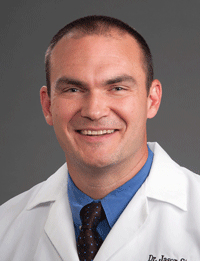 |
Polymedco sponsors continuing
medical educational events for healthcare professionals across the
country. You can register for upcoming sessions here, or watch archived
webinar recordings at any time, from anywhere. These Polymedco sponsored events are presented by
key opinion leaders in the world of
healthcare and research, and managed by Whitehat Communications to
ensure a professional environment. All programs are free, and offer P.A.C.E.®
Continuing Education Credits for up to six months after the live event.
Be sure to check back often for new event postings. |
|
|
Unlocking Rapid Diagnosis: The Power
of POC hsTnI, NT-proBNP, and D-Dimer in Emergency Departments
Live Event: Wednesday, November 13,
2024 | 1:00 - 2:00 PM ET
PACE®
Credit available until May 13, 2025 | Florida Lab
Credit available
|

 |
|
|
|
In emergency medicine, rapid and accurate diagnosis is critical
for life-threatening conditions like acute coronary syndrome
(ACS), heart failure, and thromboembolic diseases (e.g.,
pulmonary embolism). The challenge arises because the symptoms
of these conditions—such as chest pain, dyspnea, and fatigue—can
overlap, making it difficult to determine the underlying cause
quickly. Traditional diagnostic methods, relying on individual
biomarkers, can be insufficient, often leading to diagnostic
delays, unnecessary tests, or even missed diagnoses. This can
result in suboptimal treatment decisions and increased patient
morbidity and mortality.
This webinar will present a multi-marker diagnostic strategy
that integrates the use of Troponin, Natriuretic Peptides
(BNP/NT-proBNP), and D-dimer to improve diagnostic accuracy in
emergency medicine. The webinar will cover how to incorporate
these biomarkers into standardized clinical pathways and
decision-making algorithms, optimizing patient care and reducing
unnecessary testing or imaging. By adopting this strategy,
attendees will be able to reduce diagnostic uncertainty, which
will lead to faster, more effective treatments, better patient
outcomes, and improved workflow efficiency in both laboratory
and emergency departments.
This webinar will:
- Explain the diagnostic significance of Troponin,
Natriuretic Peptides (BNP/NT-proBNP), and D-dimer in
differentiating between acute coronary syndrome,
heart failure, and thromboembolic diseases in the
emergency setting
- Interpret and integrate results from multiple
biomarkers to improve diagnostic accuracy, reduce
uncertainty, and optimize treatment decisions for
patients presenting with overlapping symptoms, such
as chest pain and dyspnea
- Apply biomarker-driven clinical pathways in
practice, utilizing evidence-based algorithms for
rapid triage, diagnosis, and treatment initiation in
emergency medicine
- Describe how the use of a multi-marker
diagnostic strategy can improve patient outcomes,
streamline emergency department workflows, and
contribute to more efficient resource utilization
within healthcare institutions
|
|
Presenter:
Sean-Xavier Neath, MD, PhD, FACEP

Dr. Sean-Xavier Neath is an accomplished emergency medicine
physician and researcher with extensive experience in clinical
care, medical education, and translational research.
Board-certified in Emergency Medicine, Dr. Neath has dedicated
his career to advancing the practice of acute care medicine
through innovative diagnostic strategies and personalized
approaches to patient management. Dr. Neath earned his MD and
PhD degrees at the University of Chicago, combining his
expertise in medicine with a deep understanding of biomedical
research. He completed his residency in Emergency Medicine at
University of California, San Diego then joined the faculty of
the department where he remained for over 20 years. As a Fellow
of the American College of Emergency Physicians (FACEP), he is
recognized for his contributions to both emergency care and
medical education. |
The Clinical Evolution of NT-proBNP:
From Diagnosis and Prognosis to Guiding Therapy
Live Event: Tuesday, May 21,
2024 | 1:00 - 2:00 PM ET
PACE®
Credit available until November 21, 2024 | Florida Lab
Credit available
|

 |
|
|
|
Heart Failure (HF) afflicts a great many elderly Americans and
is the compromised ability of the heart to pump sufficient blood
to meet the patient’s physiological demands. This supply-demand
mismatch causes hemodynamic stress, which results in symptoms
including breathlessness, fatigue, shortness of breath when
lying down, swelling in the legs, ankles and feet, rapid or
irregular heartbeat and reduced ability to exercise.
The hemodynamic stress caused by HF causes release of the heart
hormone B-type natriuretic peptide (BNP). Detection of BNP’s
co-metabolite NT-proBNP is a very sensitive and reliable
biomarker of acute heart failure and should be available at all
acute care medical centers.
Interpretation of natriuretic peptides comes with caveats and
part of the focus of this talk will be to gain not just an
understanding of the signs and symptoms of HF and the associated
diagnostic thresholds for BNP and NT-proBNP but learn about
comorbidities such as renal disease and obesity and how these
may impact the levels of natriuretic peptides in the presence or
absence of heart failure. In addition, we will discuss whether
NT-proBNP levels can be used to guide and optimize ambulatory
patient treatment to reduce hospitalization and death.
This webinar will:
- Review the role of NT-proBNP in diagnosing Heart
Failure and the physiological basis of NT-proBNP as
a biomarker, its release in response to hemodynamic
stress, and its sensitivity and reliability in
diagnosing acute heart failure
- Describe the prognostic implications of
NT-proBNP levels: the objective is to understand the
prognostic significance of NT-proBNP levels in
patients with and without a diagnosis of heart
failure, including the implications for long-term
management and outcomes
- Examine the impact of Heart Failure treatments
on NT-proBNP levels: participants will learn how
treatments, particularly the use of
sacubitril-valsartan, influence NT-proBNP levels and
how these changes can guide the optimization of
treatment to reduce hospitalization and mortality
rates in patients with heart failure
|
|
Presenter:
Christopher R. deFilippi, MD, FACC
Vice-chairman of Academic Affairs
Inova Schar Heart and Vascular Institute

Christopher deFilippi is the Vice-chairman of Academic Affairs
for the Inova Schar Heart and Vascular Institute. He joined Inova in
2016 and previously had been an Associate professor with the
Division of Cardiology at the University of Maryland. He has
published over 290 peer reviewed articles, most of which have
focused on circulating biomarkers. Dr. deFilippi is a principal
investigator on active R01 and R21 NIH grants focusing on
biomarkers and proteomics insights in diuretic choice in heart
failure. He runs a core laboratory at Inova working with
multiple industry partners and his laboratory conducted testing
for a large phase III heart failure study. Academically he
serves on the editorial board for Circulation, Journal of the
American College of cardiology, Circulation Heart Failure and
the Journal of Applied Laboratory Medicine. Clinically he has
worked closely with Laboratory Medicine at Inova on introduction
of NT-proBNP and hs-cTnI testing. |
Biomarker Based Community Screening
for Cardiovascular Risk
Live Event: Tuesday, September 26,
2023 | 1:00 - 2:00 PM ET
PACE®
Credit available until March 26, 2024 | Florida Lab
Credit available
|

 |
|
|
|
Use of biomarkers, especially cardiac specific troponin and
natriuretic peptides, can be very helpful for population level
screening of communities at high risk of cardiovascular disease.
This webinar will highlight novel approaches to community
outreach and present innovative pathways to high throughput
screening with an emphasis on use of multidimensional data to
target specific neighborhoods. In doing so, this webinar will
address problems related to underdiagnosis of cardiovascular
disease which contribute to premature morbidity and mortality,
and help clinicians/institutions conceptualize approaches to
improve health outcomes in the communities they serve. By
detecting disease early, downstream consequences such as heart
attacks and strokes can be preventing, improving longevity and
enhancing lifespan equality.
This webinar will:
- Summarize an overview of biomarker based CVD
screening protocols
- Explain how multidimensional data can be used to
target high risk communities for outreach
- Identify an innovative approach that
incorporates mobile outreach to achieve true
population level cardiovascular disease prevention
and risk reduction
- Discuss a sustainable vision that can be
achieved at scale, resulting in an implementable
program that emphasizes proactive rather than
reactive cardiovascular disease interventions
|
|
Presenter:
Phillip Levy, MD, MPH, FAHA, FACC, FACEP
Professor, Emergency Medicine
Wayne State University
Associate Vice President
Translational Sciences and Clinical Research Innovation

Dr. Phillip Levy is the Edward S Thomas endowed Professor in
Emergency Medicine at Wayne State University where he serves as
Associate Vice President for Translational Sciences and Clinical
Research Innovation. Dr. Levy is a Fellow of multiple
professional societies including the American College of
Emergency Physicians (ACEP), the American Heart Association
(AHA), and the American College of Cardiology (ACC).
|
Natriuretic Peptides for the
Diagnosis and Prognosis of Heart Failure
Live Event: Wednesday, May 31,
2023 | 1:00 - 2:00 PM ET
PACE®
Credit available until December 1, 2023 | Florida Lab
Credit available
|

 |
|
|
|
Heart Failure (HF) afflicts a great many elderly Americans and
is the compromised ability of the heart to pump sufficient blood
to meet the patient’s physiological demands. This supply-demand
mismatch causes hemodynamic stress, which results in symptoms
including breathlessness, fatigue, shortness of breath when
lying down, swelling in the legs, ankles and feet, rapid or
irregular heartbeat and reduced ability to exercise. HF
diagnosis is important to diagnose and treat to relieve these
symptoms and manage this disease. The hemodynamic stress caused
by HF causes release of the heart hormone B-type natriuretic
peptide (BNP). Detection of BNP’s co-metabolite NT-proBNP is a
very sensitive and reliable biomarker of acute heart failure and
should be available at all acute care medical centers.
Interpretation of natriuretic peptides comes with caveats and
part of the focus of this webinar will be to gain not just an
understanding of the signs and symptoms of HF and the associated
diagnostic thresholds for BNP and NT-proBNP, but learn about
comorbidities such as renal disease and obesity and how these
may impact the levels of natriuretic peptides in the presence or
absence of heart failure. This webinar will also focus on
understanding other cardiovascular diseases that may influence
natriuretic peptide levels and the prognostic implications of an
elevated level with and without a diagnosis of heart failure.
This webinar will:
- Explain the signs and symptoms of HF
- Discuss the optimal diagnostic thresholds for
NT-proBNP to diagnose HF
- Explain the prognostic implications of an
elevated natriuretic peptide level with or without a
diagnosis of HF
- Identify potential confounders whether they be
medical comorbidities or treatments for HF that may
influence natriuretic peptides and recognize if
these might impact the threshold to diagnose HF
|
|
Presenter:
Christopher R. deFilippi, MD, FACC
Vice-chairman of Academic Affairs
Inova Heart and Vascular Institute

Christopher deFilippi is the Vice-chairman of Academic Affairs
for the Inova Heart and Vascular Institute. He joined Inova in
2016 and previously had been an Associate professor with the
Division of Cardiology at the University of Maryland. He has
published over 245 peer reviewed publications most of which have
focused on circulating biomarkers. His in a PI on an active R01
and R21 NIH grants also focusing on biomarker and proteomics
insights in diuretic choice in heart failure. He runs a core
laboratory at Inova working with multiple industry partners, the
NIH also having served as a corelab for a large phase III heart
failure study. |
Chest Pain Risk Stratification:
Moving Beyond the HEART Score
Live Event: Wednesday, March 29,
2023 | 1:00 - 2:00 PM ET
PACE®
Credit available until September 29, 2023 | Florida Lab
Credit available
|

 |
|
|
|
Acute coronary syndrome (ACS) is a leading cause of morbidity
and mortality worldwide. Each year, 7-9 million patients with
symptoms of possible ACS present to U.S. emergency departments
(EDs). Many of these patients are hospitalized for in-depth
evaluations, yet <10% are ultimately diagnosed with ACS.
Correctly identifying the few patients with ACS is challenging
and high-stakes for ED providers. ACS patients often have
atypical symptoms, missing ACS is associated with a two-fold
increase in mortality, and missed ACS is the top reason for
malpractice claims against ED physicians.
In response, most ED
providers have adopted a highly conservative approach and
over-test patients with possible ACS. This approach leads to
lengthy hospital-based evaluations; prolonging ED stays,
exacerbating ED and hospital crowding, and costing over $3
billion annually. In low-risk patients these evaluations are
associated with increased iatrogenic risks from false positive
testing, radiation exposure, and anxiety without improvement in
clinical outcomes. Thus, current ED care patterns for patients
with possible ACS are not sustainable from a healthcare quality
or economic perspective.
This webinar will:
- Identify the current challenges and
inefficiencies of ED chest pain evaluations
- Discuss the importance and limitations of
troponins
- Explain how accelerated diagnostic protocols aid
in risk stratification
- Assess how clinical decision support tools can
help standardize care and improve pathway adherence
|
|
Presenter:
Simon A. Mahler, MD, MS
Professor and Vice Chair of Research
Department of Emergency Medicine
Wake Forest School of Medicine

Dr. Mahler is a Professor and Vice Chair of Research for the
Department of Emergency Medicine at the Wake Forest School of
Medicine. He completed a Master of Science in Clinical and
Population Translational Sciences at Wake Forest University and
a T-32 mentored research program in Quality Care and Outcomes
Research in Cardiovascular Disease. Dr. Mahler has led several
important clinical trials examining care pathways for patients
with acute chest pain and is widely recognized as an expert in
the risk stratification of Emergency Department patients with
possible acute coronary syndrome. |
Management of Rural Patients with
Cardiovascular Complaints
Live Event: Wednesday, February 8,
2023 | 1:00 - 2:00 PM ET
PACE®
Credit available until August 8, 2023 | Florida Lab
Credit available
|

 |
|
|
|
Rural Americans are more likely to be unhealthy, older, living
in poverty, uninsured, and medically underserved compared to
residents of urban communities. These differences lead to higher
cardiovascular death rates and attenuation in the mortality
reduction from medical breakthroughs in rural areas when
compared to urban communities. Mortality differences are
multifactorial, but include increased alcohol and drug use,
smoking, and poor diet as well as joblessness and physical
inactivity.
The American Heart Association (AHA) has clearly stated their
commitment to reduce health disparities and recently issued a
presidential advisory and “Call to Action” for stakeholders to
prioritize rural communities in all capacities including
research, education, and quality improvement. This webinar will
assist you in providing evidence-based care to your rural
patients presenting with dypnea and or chest pain.
This webinar will:
- Provide an overview of how cardiovascular
disease affects rural patients
- Discuss risk stratification of patients with
symptoms concerning for ACS, PE and HF
- Examine integration of point of care biomarkers
in risk stratification
- Analyze telehealth and integration of
prehospital providers with primary care providers
|
|
Presenter:
Jason P. Stopyra, MD, MS
Atrium Health
Wake Forest Baptist

Following graduation from residency Dr. Stopyra entered private
practice at a rural community hospital Emergency Department. He
also became the county EMS Medical Director and Medical Director
of the Health Department. In 2013, he accepted an academic
position with Wake Forest University with a concentration in
Emergency Medical Services and Cardiovascular research. In 2016
he was named the North Carolina Doctor of the Year. He earned
his Masters degree in clinical research in 2019 and looks
forward to advancing rural cardiovascular care both in and out
of the hospital. |
Cardiac Biomarker Testing at the
Point of Care: NTproBNP and Cardiac Troponin in the
High-Sensitivity Era
Live Event: Tuesday, October 11,
2022 | 1:00 - 2:00 PM ET
PACE®
Credit available until April 11, 2023 | Florida Lab
Credit available
|


|
|
|
|
Heart disease is the biggest killer in the western world. As
indicated in professional guidelines on myocardial infarction
and heart failure, laboratory medicine plays a pivot role in the
diagnosis, risk assessment and monitoring of heart disease, and
clinicians depend on laboratorians to offer the best assays for
care of patients. This is particularly important with NTproBNP
and high-sensitivity cardiac troponin I (hs-cTnI) assays at both
POC and in the central laboratory. Accurate diagnosis and risk
assessment of heart failure patients allows better management
and can prevent or delay readmission, and improve quality of
life.
Earlier and more accurate diagnosis of myocardial infarction can
expedite movement of patients into the best care path for their
disease, which decreases length of stay in the emergency
department and as inpatients. This reduces costs and, most
important, improves patient health outcomes the public health
services available in the community.
This webinar will provide updated information on both NTproBNP
and hscTnI oriented to laboratorians. With this information,
laboratorians will be more valuable members of the healthcare
team, more useful stewards to their organization and better
citizens to their institution and community.
This webinar will:
- List the clinical uses for NT-proBNP and
possible interferences with the biomarker
- Compare and contrast differences between the
Fourth Redefinition of Myocardial Infarction’s
strategy for diagnosis of myocardial infarction and
the strategies articulated in the 2020 guidelines
for diagnosis of NSEMI promulgated by the European
Society of Cardiology
- Explain the definition of high sensitivity
cardiac troponin assays
- List venues where point of care testing for
NTproBNP and high sensitivity cardiac troponin would
useful and explain the benefits of POC testing for
each testing location
|
|
Presenter:
Robert H. Christenson, Ph.D., DABCC, FAACC, FACC
Professor of Pathology, Medical and Research Technology
University of Maryland School of Medicine
Medical Director Core Laboratories, Point of Care Services
University of Maryland Medical Center

Rob Christenson is Professor of Pathology and Professor of
Medical and Research Technology at the University of Maryland
School of Medicine. Dr. Christenson has published over 380
peer-reviewed papers, 6 books, 41 textbook chapters and holds 5
patents. Dr. Christenson currently serves on his university’s
Medical School Admissions Committee and on University of
Maryland’s Appointment, Promotion and Tenure Committee.
Clinically, Prof. Christenson is Medical Director of the Core
Laboratories and Point-of-Care Testing at the University of
Maryland Medical Center. |
The Evolving Role of Troponin in the
AHA/ACC Chest Pain Guidelines
Live Event: Wednesday, August 3,
2022 | 1:00 - 2:00 PM ET
PACE®
Credit available until February 3, 2023 | Florida Lab
Credit available
|

 |
|
|
|
With the advent of high sensitivity troponin, the approach to
evaluation of chest pain patients has evolved significantly, yet
many clinicians remain uncertain about how to best incorporate
relevant, emerging concepts into clinical practice.
A lack of understanding regarding emerging approaches to chest
pain evaluation contributes to inefficient risk stratification
and overutilization of healthcare resources.
This webinar will provide a road map for clinicians to
understand the landscape surrounding troponin use in the
evaluation of chest pain, using the recently published AHA/ACC
chest pain guidelines as the basis for evidence and
recommendations provided.
This webinar will:
- Review the current landscape of troponin testing
and related implications on acute chest pain
evaluation
- Examine the recent AHA/ACC chest pain
guidelines, with an emphasis on recommendations
specific to troponin
- Identify pathways and protocols for acute chest
pain evaluation with a focus on nuances related to
differing commercially available troponin assays
- Discuss the implementation of clinical decision
pathways for acute chest pain evaluation
|
|
Presenter:
Phillip Levy, MD, MPH, FACC, FAHA
Professor, Emergency Medicine
Wayne State University
Associate Vice President
Translational Sciences and Clinical Research Innovation

Dr. Phillip Levy is the Edward S Thomas endowed Professor in
Emergency Medicine at Wayne State University where he serves as
Associate Vice President for Translational Sciences and Clinical
Research Innovation. Dr. Levy is a Fellow of multiple
professional societies including the American College of
Emergency Physicians (ACEP), the American Heart Association
(AHA), and the American College of Cardiology (ACC).
|
Natriuretic Peptides for the
Diagnosis and Prognosis of Heart Failure
Live Event: Tuesday, June 21,
2022 | 1:00 - 2:00 PM ET
PACE®
Credit available until December 21, 2022 | Florida Lab
Credit available
|


|
|
|
|
Heart Failure (HF) afflicts a great many elderly Americans and
is the compromised ability of the heart to pump sufficient blood
to meet the patient’s physiological demands. This supply-demand
mismatch causes hemodynamic stress, which results in symptoms
including breathlessness, fatigue, shortness of breath when
lying down, swelling in the legs, ankles and feet, rapid or
irregular heartbeat and reduced ability to exercise. HF
diagnosis is important to diagnose and treat to relieve these
symptoms and manage this disease. The hemodynamic stress caused
by HF causes release of the heart hormone B-type natriuretic
peptide (BNP). Detection of BNP’s co-metabolite NT-proBNP is a
very sensitive and reliable biomarker of acute heart failure and
should be available at all acute care medical centers.
Interpretation of natriuretic peptides comes with caveats and
part of the focus of webinar talk will be to gain not just an
understanding of the signs and symptoms of HF and the associated
diagnostic thresholds for BNP and NT-proBNP, but learn about
comorbidities such as renal disease and obesity and how these
may impact the levels of natriuretic peptides in the presence or
absence of heart failure. This webinar will also focus on
understanding other cardiovascular diseases that may influence
natriuretic peptide levels and the prognostic implications of an
elevated level with and without a diagnosis of heart failure.
This webinar will:
- Explain the signs and
symptoms of HF
- Discuss the optimal diagnostic thresholds for
NT-proBNP to diagnose HF
- Explain the prognostic implications of an
elevated natriuretic peptide level with or without a
diagnosis of HF
- Identify potential confounders whether they be
medical comorbidities or treatments for HF that may
influence natriuretic peptides and recognize if
these might impact the threshold to diagnose HF
|
|
Presenter:
Christopher R. deFilippi, MD, FACC
Vice-chairman of Academic Affairs
Inova Heart and Vascular Institute

Christopher deFilippi is the Vice-chairman of Academic Affairs
for the Inova Heart and Vascular Institute. He joined Inova in
2016 and previously had been an Associate professor with the
Division of Cardiology at the University of Maryland. He has
published over 245 peer reviewed publications most of which have
focused on circulating biomarkers. His in a PI on an active R01
and R21 NIH grants also focusing on biomarker and proteomics
insights in diuretic choice in heart failure. He runs a core
laboratory at Inova working with multiple industry partners, the
NIH also having served as a corelab for a large phase III heart
failure study. |
ED Chest Pain Risk Stratification:
Moving Beyond the HEART Score
Live Event: Thursday, May 5,
2022 | 1:00 - 2:00 PM ET
PACE®
Credit available until November 5, 2022 | Florida Lab
Credit available
|

 |
|
|
|
Acute coronary syndrome (ACS) is a
leading cause of morbidity and mortality worldwide. Each year,
7-9 million patients with symptoms of possible ACS present to
U.S. emergency departments (EDs). Many of these patients are
hospitalized for in-depth evaluations, yet <10% are ultimately
diagnosed with ACS. Correctly identifying the few patients with
ACS is challenging and high-stakes for ED providers. ACS
patients often have atypical symptoms. Missing ACS is associated
with a two-fold increase in mortality, and missed ACS is the top
reason for malpractice claims against ED physicians.
Use of accurate accelerated diagnostic protocols and high
sensitivity troponin assays (hs-cTn) can improve the efficiency
and quality of care by safely decreasing unnecessary healthcare
utilization. The HEART Pathway is a validated care algorithm
designed to safely identify patients with acute chest pain for
early discharge from the ED without stress testing or coronary
angiography. In a randomized clinical trial, the HEART Pathway
reduced hospitalizations by 21% and cost by >$200 per patient,
without any adverse cardiac events occurring in low-risk
patients.
This webinar will discuss the diagnostic dilemma of acute chest
pain in the ED and how new strategies and pathways have evolved
to safely and more efficiently care for patients with chest
pain.
This webinar will:
- Identify the current challenges and
inefficiencies of ED chest pain evaluations
- Assess the importance and limitations of
troponins
- Discuss how accelerated diagnostic protocols aid
in risk stratification
- Explain how clinical decision support tools can
help standardize care and improve pathway adherence
|
|
Presenter:
Simon A. Mahler, MD, MS
Professor and Vice Chair of Research
Department of Emergency Medicine
Wake Forest School of Medicine

Dr. Mahler is a Professor and Vice Chair of Research for the
Department of Emergency Medicine at the Wake Forest School of
Medicine. He completed a Master of Science in Clinical and
Population Translational Sciences at Wake Forest University and
a T-32 mentored research program in Quality Care and Outcomes
Research in Cardiovascular Disease. Dr. Mahler has led several
important clinical trials examining care pathways for patients
with acute chest pain and is widely recognized as an expert in
the risk stratification of Emergency Department patients with
possible acute coronary syndrome. |
Management of Rural Patients with
Chest Pain
Live Event: Wednesday, March 23,
2022 | 1:00 - 2:00 PM ET
PACE®
Credit available until September 23, 2022 | Florida Lab
Credit available
|

 |
|
|
|
Rural Americans are more likely to be unhealthy, older, living
in poverty, uninsured, and medically underserved. These
differences lead to higher cardiovascular death rates and
attenuation in the mortality reduction from medical
breakthroughs in rural areas when compared to urban communities.
Over the past 40 years, the gap in health outcomes among
patients living in rural communities versus urban areas has
widened. Mortality differences are multifactorial, but include
increased alcohol and drug use, smoking, and poor diet as well
as joblessness and physical inactivity. Current statistics
reveal that rural communities are becoming more diverse, which
further adds many race- and ethnic-specific health disparities
to the rural setting. In addition, there is heterogeneity in
socioeconomic status across rural locations and this variability
is not necessarily correlated with population size or distance
from urban areas.
Achieving health equity and improving cardiovascular health for
rural Americans was one of the CDC’s Healthy People 2020
overarching goals. The American Heart Association (AHA) has
clearly stated their commitment to reduce health disparities and
recently issued a presidential advisory and “Call to Action” for
stakeholders to prioritize rural communities in all capacities
including research, education, and quality improvement. Heart
disease is the leading cause of death in the US, and
disproportionately impacts patients in rural areas. Healthcare
resources are limited in rural communities. This presentation
will assist you in providing evidence based care to your rural
patients.
This webinar will:
- Appreciate an overview of how heart disease
affects rural patients
- Discuss risk stratification of patients with
symptoms concerning for ACS, PE and HF
- Explain integration of point of care biomarkers
in risk stratification
- Describe telehealth and integration of
prehospital providers with primary care providers
|
|
Presenter:
Jason P. Stopyra, MD, MS
Atrium Health
Wake Forest Baptist

Following graduation from residency Dr. Stopyra entered private
practice at a rural community hospital Emergency Department. He
also became the county EMS Medical Director and Medical Director
of the Health Department. In 2013, he accepted an academic
position with Wake Forest University with a concentration in
Emergency Medical Services and Cardiovascular research. In 2016
he was named the North Carolina Doctor of the Year. He earned
his Masters degree in clinical research in 2019 and looks
forward to advancing rural cardiovascular care both in and out
of the hospital. |
Cardiac Biomarkers: Current Status,
Future Promise
Live Event: Wednesday, February 23,
2022 | 1:00 - 2:00 PM ET
PACE®
Credit available until August 23, 2022 | Florida Lab
Credit available
|


|
|
|
|
Heart Disease, including myocardial infarction (MI) and heart
failure (HF), is the biggest killer of both men and women in the
USA and Western world. Making the correct diagnosis in patients
suspected cardiac diseases is critical as these conditions are
life threatening. The standard of care for diagnosis of MI and
HF requires timely availability of cardiac troponin and
NT-proBNP testing so that patients can receive evidence-based
management strategies known to improve outcomes.
Diagnosing cardiac disease, including MI and HF, is critical to
acute patient management.
In the context of MI, cardiac troponin measurements are the
cornerstone for acute diagnosis and risk assessment. For
diagnosis of acute decompensated heart failure, NT-proBNP has
become a standard.
This webinar will focus on the characteristics and
considerations that are important when selecting cardiac
troponin and NT-proBNP assays. Insight into interpretation of
cardiac troponin and NT-proBNP assays will also be discussed.
And examination of the benefits of point of care testing (POCT)
for cardiac troponin and NT-proBNP will be a key part of this
presentation.
This webinar will:
- Describe the biomarker criteria needed to
establish the diagnosis of MI
- Explain the criteria for and definition of early
generation, contemporary, and high sensitivity
cardiac troponin assays
- Identify the symptoms of heart failure
- Review the biomarkers that are used for the
diagnosis of acute heart failure
- Evaluate NT-proBNP as a diagnostically sensitive
and specific marker of HF
|
|
Presenter:
Robert H. Christenson, Ph.D., DABCC, FACB
Professor of Pathology, Medical and Research Technology
Maryland School of Medicine

Dr. Christenson is a Professor of Pathology and Professor of
Medical and Research Technology at the University of Maryland
School of Medicine in Baltimore, Maryland. Clinically, Dr.
Christenson is Medical Director of the Core Laboratories and
Point of Care Testing at the University of Maryland Medical
Center. Dr. Christenson has published over 295 peer-reviewed
papers, 6 books, 32 textbook chapters and holds four patents. |
|
These webinars are sponsored by |
 |
|
|
© 2024 | Whitehat
Communications, a division of Martek Inc. |
|









